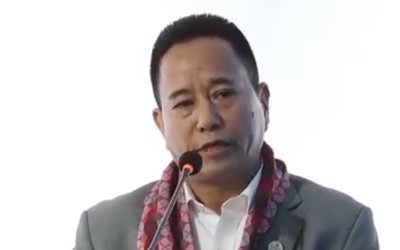More on News





The UPA government has been caught on the wrong foot on many issues in recent times. From corruption to rising prices and from squabbling among the alliance partners to a series of foreign policy goof-ups. As elections enveloped a number of states and its woes only increased in the desperation of wresting back crucial states especially in the Hindi belt. Adding to the woes was the issue of a different kind of minorities – the gays.
When it comes to gay rights, the Government of India can’t seem to get it ‘straight’!
During a hearing on more than a dozen petitions filed against legalization of same sex relationship in the Supreme Court last week, a government lawyer described homosexuality as ‘immoral’ and an ‘unnatural offense’; only to be countered by his own government later, which said it did not share the view. The goof-up happened when the lawyer, as it turned out, was presenting the government’s pre-2009 stance on the issue. After the Delhi High Court’s decision in 2009 to grant rights to the homosexuals, the government had softened its view and had not filed an appeal in the Supreme Court to challenge the decision. In case of an appeal by a third party, it was decided that the government would not take sides and assist the court in settling the matter.
It is quite clear that the government is trying to play safe; more so now, with state elections going on. What’s hard to believe is that it has actually toned down its view and now considers homosexuality perfectly legal. In other words, the issue has just been brushed under the carpet for the present.
Homosexuality largely remains a taboo in the Indian society. Religious groups have been sternly against it and the LGBT (Lesbian Gay Bisexual Transsexual) community is widely discriminated against, some even calling homosexuality a ‘disease’. Quite understandably, most of them prefer not to publicly acknowledge their sexual orientation. This brings us down to another question; can the sentiments of majority consume the rights of minority? Definitely not. Instead, it is the duty of the government to provide solace to the discriminated minority. In addition, when the right to freedom and right to life of the homosexuals’ are openly flouted, the government should be providing their firm support and not remain ‘neutral’.
Another question that stems out while talking about the government’s role is that if it has the right to legislate the personal choice of its citizens. What about the right to privacy? The problem here is the law. Section 377 of the Indian Penal Code (IPC), which prohibits same sex relationship has come under heat time and again. Gay rights activists have called for its modification given the fact that the IPC was made almost 150 years back, and the law needs to be changed according to the changing times. That was ultimately reflected in the Delhi High Court’s order. Says Justice (retd.) Mukul Mudgal, “The issue was definitely within the purview of the law under Section 377 of the Indian Penal Code (IPC)”. He adds, “But if the High Court’s orders are to be followed, the law should not be applied to ‘consenting adults’ anymore”. To put it in another way, voluntary same sex relationship, do not fall under the jurisdiction of law going by the 2009 decision. But the government is far from enacting it.
Although the government is currently acting neutral, its behavior is not enigmatic. It is highly likely that it would wake up to the issue and argue for its criminalization on grounds of morality and religion once again. In that case, question would arise if the government can be granted the right to define what’s moral and what is not. The government is supposed to act as a law-enforcing agency and not a moral police. Also, calling for a ban on gay rights on religious grounds would not be wise. Ancient temples like that of Visvanatha in Khajuraho show clear traces of homosexuality. How would the government react then?
If the Indian state really comprises of an all inclusive society, then the way ahead is clear; properly implement the high court’s orders irrespective of protests against it. The government needs to come out of its closet now.





